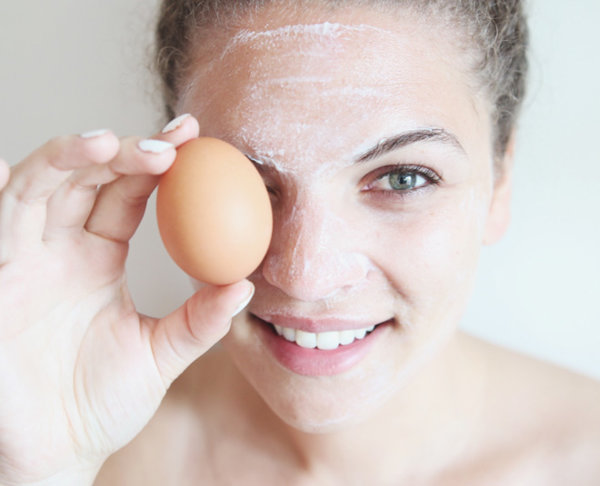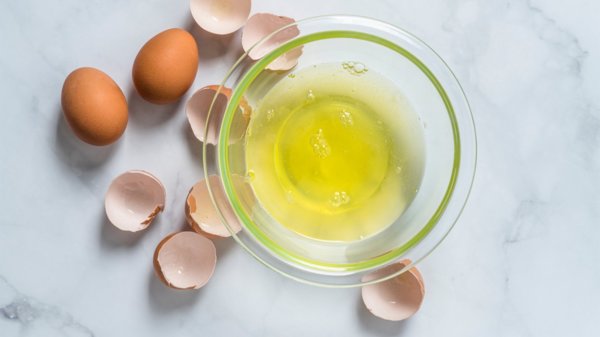Egg white is known to be rich in beneficial elements that nourish the body, and it is considered one of the natural remedies that are beneficial for the skin as it contains a high percentage of protein and sodium and low in fat and calories, and eggs are rich in a group of acids, including choline and folic acid, in addition to Essential vitamins and important elements.
On the other hand, we do not recommend using egg white on the face, especially for those with sensitive skin and prone to pimples and cracks, either as a mask or as a treatment, as it is simply not worth the risk. Among some of the potential risks:
Allergic reaction
It goes without saying that you shouldn’t eat eggs if you have a known allergy to egg whites, but you shouldn’t use them topically either. Depending on the severity of the sensitivity of the skin, you may experience symptoms such as severe itching, rashes, and difficulty breathing from using egg white on your face.
Symptoms of egg intolerance
Unlike an egg allergy, an intolerance to eggs can cause inflammation and digestive upset when eaten. If you use an egg white mask on your face, you still run the risk of getting a small amount into your mouth.
Salmonella infection
You may remember the warning signs about eating raw food and how it can lead to a salmonella infection, all for good reason. Although it is relatively uncommon, this type of infection is caused by the salmonella bacteria, which is sometimes found in raw eggs and meat, as well as contaminated products and water. If you do become infected, you can have severe digestive discomfort for up to 1 0 days, including diarrhea, nausea, and cramps.
Skin irritation
Practically any substance can cause skin irritation, even if you do not have an allergy or an intolerance. If you notice slight itching, redness, or bumps after using egg whites, stop using them immediately.

Other infections
It is never a good idea to put raw food on your skin, especially if you have recently had any cuts, scrapes or cuts. Raw egg white can cause a secondary infection.
Surface contamination
Using egg whites can contaminate surfaces, such as sinks and counters, as well as any other places where the mask can drip onto your face and drip around the house.
Exposing others to danger
If you have loved ones in your family who are allergic to egg whites, you could potentially harm them by using a homemade egg white mask. If you are using one, be sure to apply it to your skin with gloves and stay in one place so that you do not spread bacteria all over your home.
Aside from the potential risks, simply using egg white on your face does not work. Your skin may feel smooth at first, but these effects will quickly disappear once you wash off the mask from your face. If you are looking to remove dark spots, wrinkles and other signs of aging, it is best for you to use traditional products that are clinically tested and proven to work.
Is there a safe way to use egg whites?
If you still want to try an egg white mask, you can help reduce skin reactions by choosing safer eggs. This means using pasteurized organic eggs or cartons of egg whites in place of native eggs. It is also important to reduce the risk of contamination by placing the mask in the bathroom or kitchen. Make sure to disinfect the sink and surrounding surfaces, and wash your hands immediately after use.





![The Top & Most Popular Seafood Bucket Restaurants in Dubai for you [Never Miss]](https://uae24x7.com/wp-content/uploads/2020/09/8-seafood-in-a-bucket-scaled-e1600739237403.jpg)
![Procedures for Renewing the Driving License in Abu Dhabi [3 Simple Steps]](https://uae24x7.com/wp-content/uploads/2020/07/Capture-9-e1595666454466.jpg)





